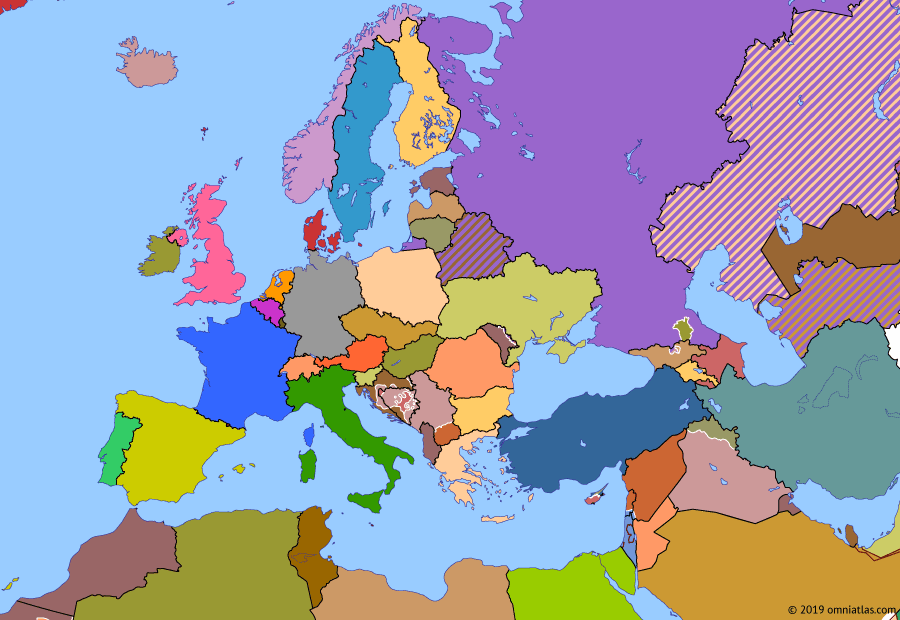Europe 1992: Bosnian War
22 June 1992
22 Jun 1992
Post-Cold War Europe
-27–68 Julio-Claudian Dynasty
68–96 Flavian Dynasty
96–192 Nerva–Antonine Dynasty
192–235 Severan Dynasty
235–268 Crisis of the Third Century: Turmoil
268–284 Crisis of the Third Century: Restoration
284–311 Diocletian and the Tetrarchy
311–363 Constantinian Dynasty
363–383 Valentinianic Dynasty
383–408 Theodosian Dynasty: Divided Empire
408–425 Theodosian Dynasty: The West Besieged
425–442 Theodosian Dynasty: Fall of Africa
442–1803 NO MAPS FOR THIS PERIOD YET
1803–1814 Napoleonic Wars
1814–1815 Vienna and Waterloo
1815–1848 Congress Europe
1848–1850 Springtime of Peoples
1850–1859 Crimean War
1859–1862 Italian Unification
1862–1871 German Unification
1871–1914 Imperial Europe
1914–1918 Great War
1918–1922 Armistice Europe
1922–1939 Rise of Fascism
1939–1942 World War II: Blitzkrieg
1942–1945 World War II: Fall of the Third Reich
1945–1990 Cold War
1990–2010 Post-Cold War Europe
2010–pres Crisis of Europe
Bosnian War
3 Oct 1990 Reunification of Germany
28 Feb 1991 Gulf War
27 Jun 1991 Breakup of Yugoslavia
19 Aug 1991 Soviet Coup Attempt
6 Sep 1991 Baltic Independence
9 Dec 1991 Croatian War of Independence
25 Dec 1991 Collapse of the Soviet Union
22 Jun 1992 Bosnian War
1 Nov 1993 European Union
12 Jun 1999 Kosovo War
13 Apr 2003 War on Terror
16 Aug 2008 South Ossetia War
By 1992 Yugoslavia and Croatia were ready to accept a UN-backed ceasefire. Although this didn't end all fighting in Croatia, it helped shift the battle to newly independent Bosnia-Herzegovina, whose ethnic divisions now triggered a civil war between Serb, Croat, and Bosniak factions. The Serb-dominated rump state of Yugoslavia promptly backed the Bosnian Serbs, giving them a strong advantage over their opponents.
